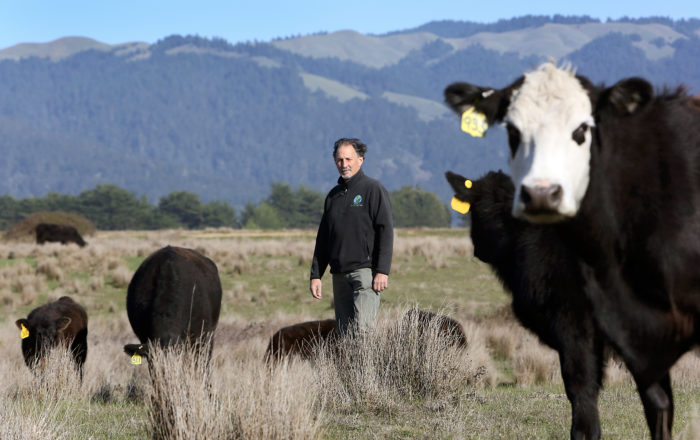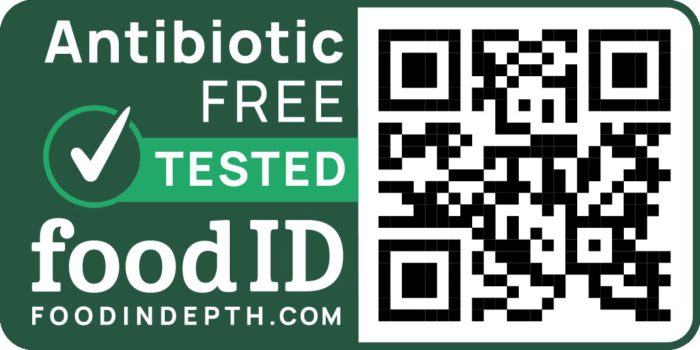Posted by: Bill Niman, Co-Founder

I started Niman Ranch in 1978.
My mission was to feed people delicious food from animals raised — humanely, sensibly, in an environmentally friendly manner.
I wanted to raise cattle the traditional way — driven by nature – with animals eating grass and without antibiotics, hormones or other drugs or chemicals. Equally important was allowing pigs to be raised outdoors, with wholesome drug-free rations. A rarity in the increasingly industrialized animal farming world.
“Natural meat” was not yet a thing.
You could hardly find any labels in the supermarkets denoting antibiotic free, hormone free, or humanely raised. The mainstream animal food industry initially scoffed at my efforts to eliminate man made compounds such as antibiotics.
Fast forward to 2020.
Much has changed. Meats and poultry that are “Natural”, “Antibiotic Free” and “Hormone Free” are now, like organic, widely available. They have become big business occupying the premium end of the market with the bulk of production controlled by the biggest animal agriculture enterprises.
While Americans are consuming more and more of these “natural” foods (and paying a premium for the privilege), the “natural” food claim is largely unsubstantiated . Most antibiotic free claims are unverified.
Testing to back-up the “antibiotic free” and other food label claims is largely absent.
“Currently, there is no single definition for “antibiotic free” on food labels. This label is not approved by the USDA, and has no clear meaning.”
Centers for Disease Control
Indeed the bulk of label claims are based merely on producer assertions, not actual testing. This includes the Global Animal Partnership (“g.a.p.”) which is primarily based on producer affidavits. With animals potentially passing through multiple hands and being fed from several providers, there is significant potential for mistakes, carelessness or cheating .
The lack of testing, while troubling, is understandable.
Some current testing technologies are slow and expensive; others do not test for enough substances with sufficient sensitivity to pick up contaminated meat. Mass spectrometry tests are far too slow to work at plant line speeds, thus its usefulness in the real world is limited. Faster, cheaper testing technologies lack the comprehensiveness to detect the bulk of substances administered in feed and water. And the sensitivity to detect even low levels of substance. This current lack of good options has contributed to the general lack of testing.
Which means we do not know enough about what is in our food.
Which is a problem.
This is particularly true with antibiotics (all antimicrobials) and beta agonists.
Antibiotic resistance is a national and global crisis.
More than 2.8M antibiotic resistant infections occur each year in the US (CDC). It is estimated that antibiotic resistant “superbugs” result in 162,000 deaths a year in the US (NRDC) and 700,000 deaths a year globally (WHO). The U.S Centers for Disease Control and Prevention calls antibiotic resistance “one of the biggest public health challenges of our time,” (CDC) with the World Health Organization calling antimicrobial resistance “one of the world’s top 10 public health threats (2019)”. (WHO)
“With AMR [antimicrobial resistance], we have a public health threat [that] could have as great, if not bigger an impact on our health, health systems and economically as Covid-19 ”
Financial Times
Excessive and improper use of antibiotics in livestock production is accelerating the development of antimicrobial resistance.
The meat we eat plays a role.
70% of antibiotics used in the US are given to animals raised for food.
The Pew Charitable Trusts
Antimicrobials are used in livestock production to suppress disease in crowded conditions and to boost productivity. Due to the conditions of intensive agriculture, the use of antibiotics is widespread. These practices contribute to the spread of drug-resistant pathogens in both livestock and humans. Antibiotic resistant pathogens can be spread through air, soil, and water as well as through live animals and their meat.
Curtailing antibiotic use in people and animals slows the threat of antimicrobial resistance and helps preserve the life-saving effectiveness of current and future drugs.
With so many antibiotics in the global food network, testing is key to identifying and reducing the undesirable impacts of improper antibiotics use in animal feeding.
Enter Food In-Depth.
This is precisely why we started Food In-Depth (formerly Ataraxis Biosciences). Food plays a pivotal role in our personal health and well-being as well as the health of our communities and the planet. Knowing what’s in our food empowers us to make informed, safe choices.
This is a real challenge:
The reality is that billions are fed by the current food system.
Testing needs to be:
Scientists. Technologists. Ranchers. Food Experts.
Making this work called for a diverse set of skills and experiences. We needed a team with a complete hands-on understanding of the animal foods supply chain. An understanding of the science and diagnostics. And the tech that enables it to scale. So we brought together a team of scientists, technologists, ranchers and food experts. People like my co-founder Dan Denny, Stanford PhD and our CEO Kevin Lo who is a veteran leader at Facebook and Google. And Joel Martin who is an expert in the world’s animal food systems — from farm to table. Even a long time rancher and meat company founder like me.
Partners and Investors.
We brought on partners and investors like S2G Ventures who bring a depth of knowledge of the world of food. And our Board Member Walter Robb who was co-CEO of Whole Foods.
We have been in stealth mode for some time as we solve the hundreds (maybe thousands!) of challenges big and small to accomplish our mission.
The FoodID Test Kit.
While we are just getting started our initial testing solution is operational. Our test kit identifies 7 drug families.
The test kit is:
The test kit is in use in Canada and the US with partners in beef, pork and poultry. We are grateful to them. Forward-looking folks like pasture-raised heirloom chicken producer Cooks Venture and clean meat provider Beretta Farms.
Be on the lookout for the FoodID label.
It is your assurance that the chicken you are buying in the supermarket or the burger in the fast serve restaurant has been tested. That the claim is not just a “promise” — but is backed by real testing.

Just getting started.
Going forward, FoodID will be deepening our partnerships with forward-looking companies across the supply chain. We will work with them to manage supply chain and brand claim risks while demonstrating a commitment to safe food. We will provide rigorous, regular on-site testing — including routine animal production facility audits — to verify food safety and authenticate label claims.
I have always felt that any meat I sell must be meat I was willing to eat myself and feed my family. Failing that simple test I would not put my name on it.
Know your food.
I believe that it is more important than ever to know our food and manage the risk of what we eat. Covid-19 has made it even clearer for many of us that nothing is more precious than our health. Food plays an essential role in our health and well being. Other than raising your own food the one way to truly know what is in the food you eat, sell or serve is to have it tested.
Are you passionate about food safety? Want to keep up to date on meat testing and the use of antibiotics in livestock production? Sign-up to receive notifications for articles we’ve been reading and company updates on our journey to build a future where everyone knows what’s in their food.